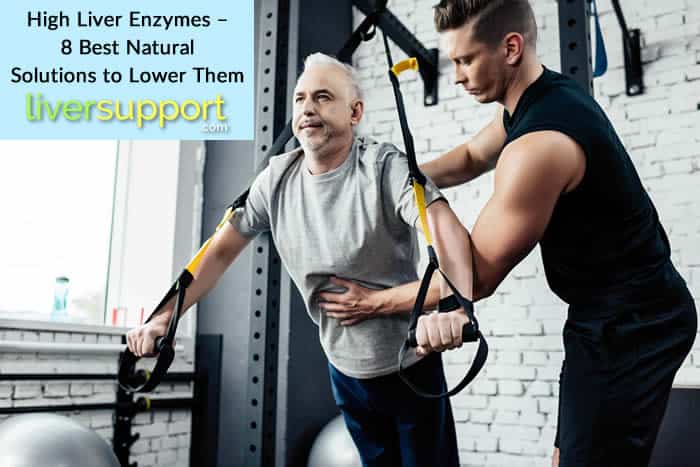
Previous
How Long Does It Take for Milk Thistle to Work?

Next
Having a Healthy Liver Boosts Immune Health
High Liver Enzymes – 8 Best Natural Solutions to Lower Them
Learn about the main causes responsible for elevated liver enzymes, as well as 8 natural ways you can lower them.
High liver enzymes generally signify that your liver may be in trouble. In this article you’ll discover what types of liver enzymes may be elevated, what causes high liver enzymes, including 8 solutions to lowering liver enzymes, naturally (1).
What Liver Enzymes May Be Elevated?
Elevated liver enzymes indicating potential cellular damage include the following aminotransferases:
- Alanine transaminase (ALT)
- Aspartate transaminase (AST)
- Alkaline phosphatase (ALP)
- Gamma-glutamyl transpeptidase (GGT)
AST and ALT are the most frequently measured enzymes, although GGT is measured occasionally, especially in alcoholic liver disease.
10 Top Causes of High Liver Enzymes
While most of the time mildly elevated liver enzymes are only temporary and do not indicate a chronic problem, often they do indicate there is a problem and the liver is suffering.
Elevated liver enzymes are most often caused by:
- Viral infections such as hepatitis A, hepatitis B, or hepatitis C
- Non-alcoholic fatty liver disease (NAFLD)
- Liver and pancreatic cancer
- Metabolic syndrome
- Medications such as Tylenol, cold preparations, statins, niacin, antibiotics
- Alcohol misuse
- Heart failure
- Obesity
- A sedentary lifestyle
- Malnutrition or poor diet in general
Although the above list is not exhaustive, keep in mind that a fatty liver is by far the most common cause of elevated liver enzymes.
8 Natural Approaches to Lowering Liver Enzymes
Many liver diseases have no pharmacological treatment, and taking steps to heal the liver naturally is the best option. Lifestyle changes such as following a nutritionally adequate diet, getting enough exercise, avoiding toxins, and maintaining optimum weight may all contribute to liver healing and a normalization of liver enzymes.
1. Exercise & Lifestyle
Research shows that exercise, independent of weight loss, lowers liver enzymes. A 2011 study on resistance exercise that reached aerobic potential showed a reduced ALT and AST by 47% and 48% respectively in a 12-week exercise intervention program. Liver fat was also reduced (2).
Exercise typically aids in weight control, another lifestyle intervention that lowers liver enzymes.
Obesity is an independent predictor of ALT increases in young people, but not in children (3). In children and young people, abnormal levels of serum aminotransferases lead to a greater burden of liver disease in adulthood.
The CDC reports that over 50% of the population is overweight, 25% are obese, and 90% of these two groups have elevated liver enzymes.
2. Diet Modification
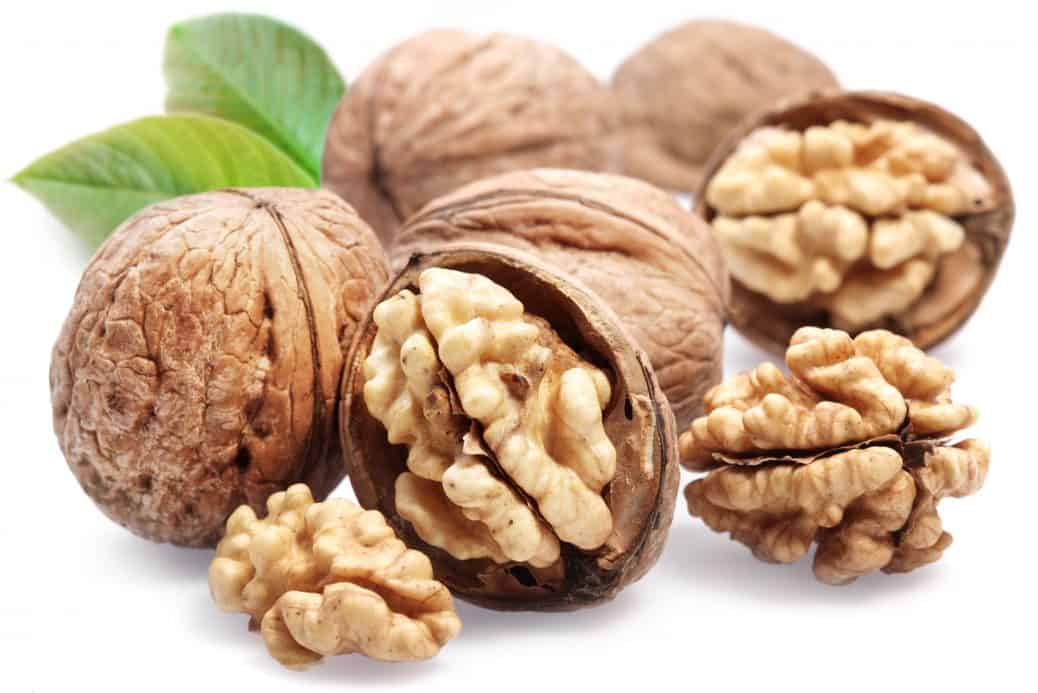
Research has shown that consumption of olive oil (4) and omega-3 fatty acids (5), both characteristic of the Mediterranean Diet, may be beneficial in liver health.
Decreasing total fat consumption and shifting to monounsaturated fatty acids found in olive oil (20-40% of total energy) or n-3 polyunsaturated fatty acids found in fish oil (2 g/day) could lead to a decrease in postprandial lipidemia and liver fat (steatosis) with a consequential decrease in liver enzymes.
Decreasing cholesterol in the diet by following a low saturated fat, low cholesterol diet may also help decrease liver enzymes (1).
Increasing omega-3 fatty acids (which can be found in walnuts, fish, and more!), adding water-soluble fibers to the diet, avoiding trans and saturated fats, and reducing meat may provide a more favorable lipoprotein ratio and cholesterol levels, which are inversely related to liver enzyme levels.
A high LDL cholesterol level is associated with 2.5 x greater odds of having an elevated ALT according to a population-based study (6).
According to a 2013 study on the effect of changing lunch composition to contain more vegetables, eating more vegetables was found to lower ALT levels (1). Subjects were provided the healthy lunch for one month after a one-week washout period and ALT levels were measured.
Following a low glycemic diet in insulin resistant, diabetes-prone individuals also is liver protective.
3. Probiotics
Research shows that gut microbiota (GM) affects liver lipid metabolism and influences the balance between pro/anti-inflammatory cells in the liver. It is theorized that probiotics can normalize the GM and improve the liver enzymes, hepatic steatosis and reduce inflammation (7).
A growing number of studies show that the host-gut microbiome interaction and physiology of dysbiosis (microbial imbalance) may promote the development of liver disease.
Bacterial metabolites, immune-related effects and energy extraction/balance disruption in the GM might promote liver disease progression.
Therefore, restoring dysbiosis through correction of these problems with the use of a probiotic may improve liver enzyme levels.
Probiotics are found in yogurts that contain active cultures, in kefir, as well as in supplements, such as Natural Wellness’s Ultra Probiotic Formula.
4. Coffee
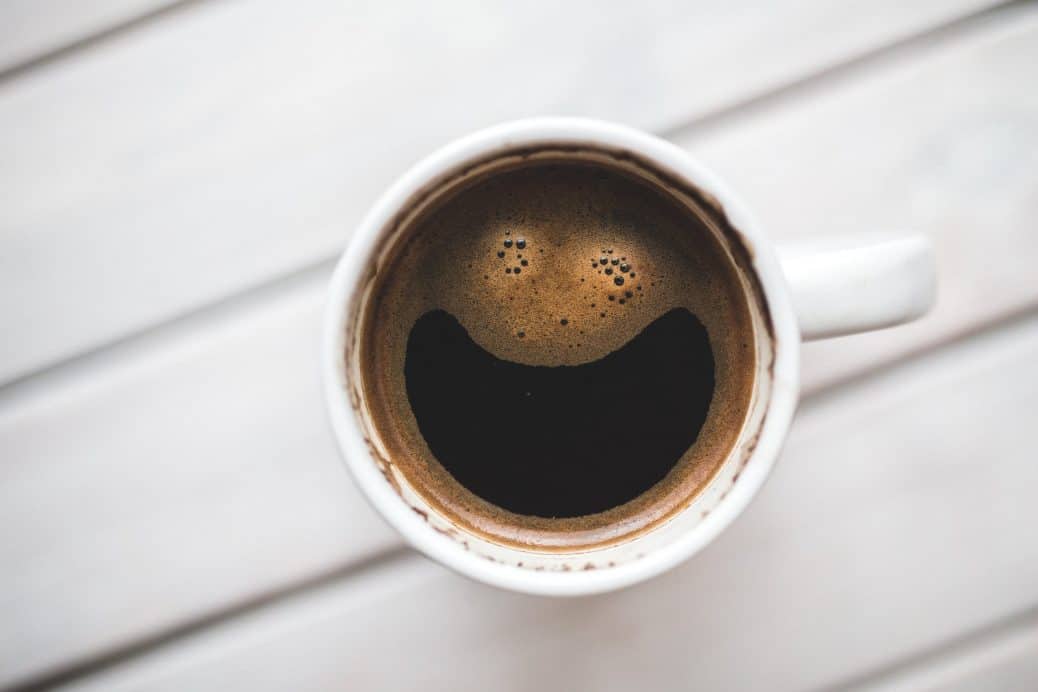
Coffee is one of the most popular hot beverages consumed worldwide! It is a polyphenol compound containing caffeine, and either whole coffee or its specific components have been shown to decrease fatty acid synthesis, liver fibrogenesis, and hepatic inflammation. It is also an excellent antioxidant (7).
A lowering of GGT levels was first seen in 1986 and associated with increased liver health. This large population-based study was followed by several smaller epidemiological studies that confirmed the reduction in levels of liver enzymes and GGT in both whole and decaffeinated coffee consumers.
Coffee was also found to be associated with less fibrosis, lower hospitalization rates, and lower mortality rates in alcoholic liver diseases (8).
The addition of milk or creamers decreased or delayed the beneficial absorption of polyphenols found in coffee. Polyphenols are thought to be responsible for some of the beneficial effects seen in coffee drinkers.
5. Silymarin
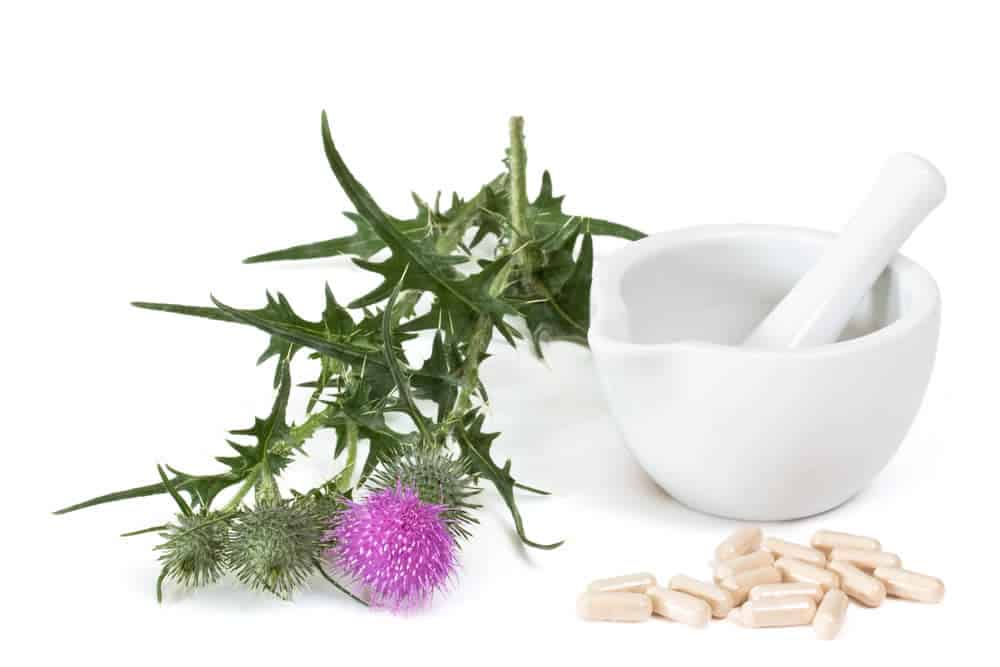
In several studies, silymarin (milk thistle) has been shown to reduce liver enzymes and to improve liver health. It is a polyphenol, has been shown to stimulate 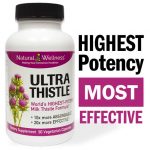 liver regeneration, as well as to reduce liver inflammation and fibrogenesis.
liver regeneration, as well as to reduce liver inflammation and fibrogenesis.
Treatment with silybin (from milk thistle) plus phosphatidylcholine coformulated with vitamin E for 12 months was associated with an improvement in liver enzymes, insulin resistance, and liver histology in 138 patients with NAFLD (4).
6. Folic Acid
A folate deficiency may increase the risk of damage to the liver and potentially be a link to liver cancer. Taking supplements of folic acid may reduce ALT levels.
A 2011 study showed that supplementation with .8 mg. folic acid in 455 participants lowered ALT levels in men whose ALT levels were elevated (1).
Another study with children who were experiencing drug induced liver injuries were randomized to receive either silymarin (5 mg/kg/day) or folic acid (1 mg per day) and followed for 3 months.
The decreased trend in ALT and AST were stronger in the folic acid group as compared to the silymarin group, although both groups showed decreases (9).
7. Toxin Avoidance

Keeping liver enzymes low means protecting your liver from toxic insults from excessive alcohol, environmental toxins, smoking, and poisons in the environment as much as possible (1).
Drink bottled or filtered water, avoid second-hand smoke, do not drink excessively, take precautions when working with chemicals, avoid charred meat, and avoid unnecessary medications such as Tylenol, etc.
Supplementing with certain herbs and living a lifestyle that enhances the detoxification process in the liver aides in cleansing the toxins from your system.
8. Turmeric
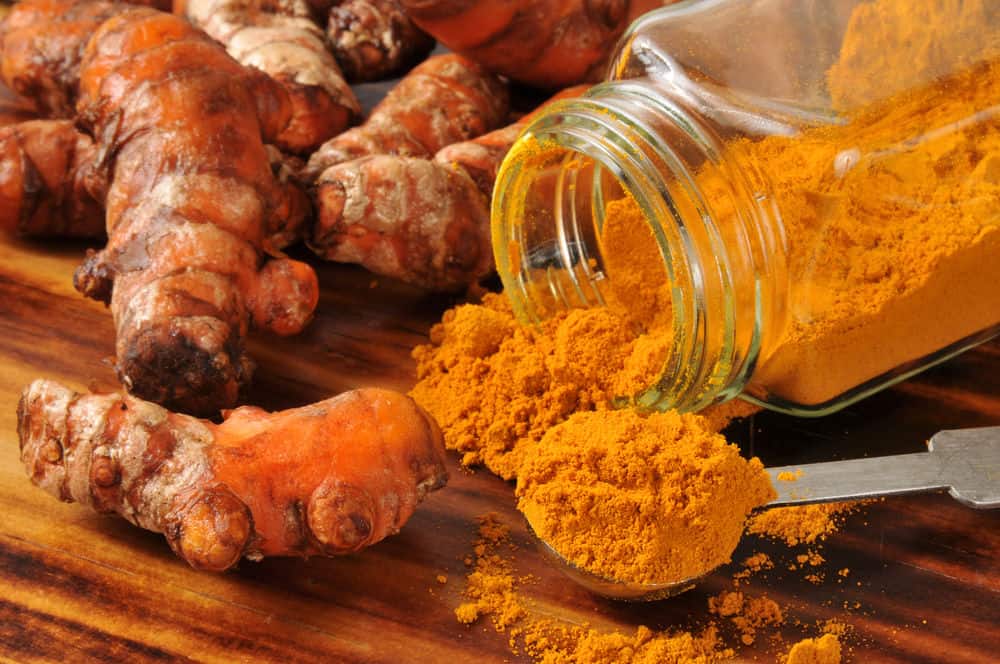
Curcumin (turmeric), like Natural Wellness’s Turmeric 95, is a widely used herb virtually endowed by various functionalities that protect the liver and keep oxidative stress at a minimum. Oxidative stress is a hallmark of liver disease. Turmeric also helps the liver process fat.
Chronic liver disease, accompanied by increased oxidative stress regardless of the liver insult, is responsive to curcumin treatment for fibrosis, cancer, and cellular dysfunction (10).
A study of a group taking 3 grams of turmeric daily for 12 weeks showed markedly lower AST and ALT levels compared to the control group (11).
Conclusion
Allowing liver enzymes to remain elevated only increases your risk of further liver demise and potential liver cancer. Taking proactive steps to lower your liver enzyme levels will pay off in the long run with a zestier, longer life.
The good news is that you can use the 8 solutions discussed above to help heal your liver and lower those liver enzymes naturally without drugs.
- Sissons, B. (2019, September 24). Natural ways to lower ALT levels. Medical News Today. Retrieved 4/20/2020 from https://www.medicalnewstoday.com/articles/326425
- Hallsworth, K., Gattakhova, G, Hollingsworth, K., Thoma, C., Moore, S. and Trenell, M. (2011). Resistance exercise reduces liver fat and its mediators in non-alcoholic fatty liver disease independent of weight loss. Hepatology, 60:1278-1283. Retrieved from http://dx.doi.org/10.1136/gut.2011.242073
- Li, W., Homer K., Hull, S., Boomla, K. Robson J. and Alazawi, W. (2020). Obesity predicts liver function testing and abnormal liver results. The Obesity Society, 28:132-138. Retrieved from https://doi.org/10.1002/oby.22669
- Assy, N. Nassar, F., Nassar, G. and Grosovski, M. (2009) Olive oil consumption and non-alcoholic fatty liver disease. World J. Gastroenterology. 15 (15):1809-1815. Retrieved from https://doi.org/10.3748/wjg.15.1809
- Del Ben, M, Polimeni, L, Baratta, F, Pastori, D and Angelico, F. (2016). The role of nutraceuticals for the treatment of non-alcoholic fatty liver disease. Br J Clin Pharmacol, (2017) 83:88-95. Retrieved from https://doi.org/10.1111/bcp.12899
- Deb, S., Puthanveetil, P. and Sakharkar, P. (2018). A population-based cross-sectional study of the association between liver enzymes and lipid levels. International Journal of Hepatology. Retrieved from https://doi.org/10.1155/2018/1286170
- Xie, C and Halegoua-DeMarzio, D. (2019). Role of probiotics in non-alcoholic fatty liver disease: does gut microbiota matter? Nutrients, 11(11):2837. Retrieved from https://doi.org/10.3390/nu11112837
- Alferink, L. J. (2018). Potential mechanisms underlying the role of coffee in liver health. Semin Liver Dis, 38(03):193-214. Retrieved from https://doi.org/10.1055/s-0038-1666869
- Asgarshirazi, M, Shariat, M and Sheikh, M. (2017). Comparison of efficacy of folic acid and silymarin in the management of antiepileptic drug induced liver injury: a randomized clinical trial. Hepatobiliary & Pancreatic Diseases International, 16(3):296-302. Retrieved from https://doi.org/10.1016/S1499-3872(16)60142-X
- M.H. Zobeiri, M., Parvizi, F., El-Senduny, F.F., Marmouzi, I. and Abdollahi, M. (2018). Curcumin in liver diseases: A systematic review of the cellular mechanisms of oxidative stress and clinical perspective. Nutrients, 10(7):855. Retrieved from https://www.ncbi.nlm.nih.gov/pmc/articles/PMC6073929/
- Tumeric for liver health. (2013, March). TRC Natural Medicines. Retrieved 4/21/2020 from https://naturalmedicines.therapeuticresearch.com/news/news-items/2013/march/turmeric-for-liver-health.aspx

